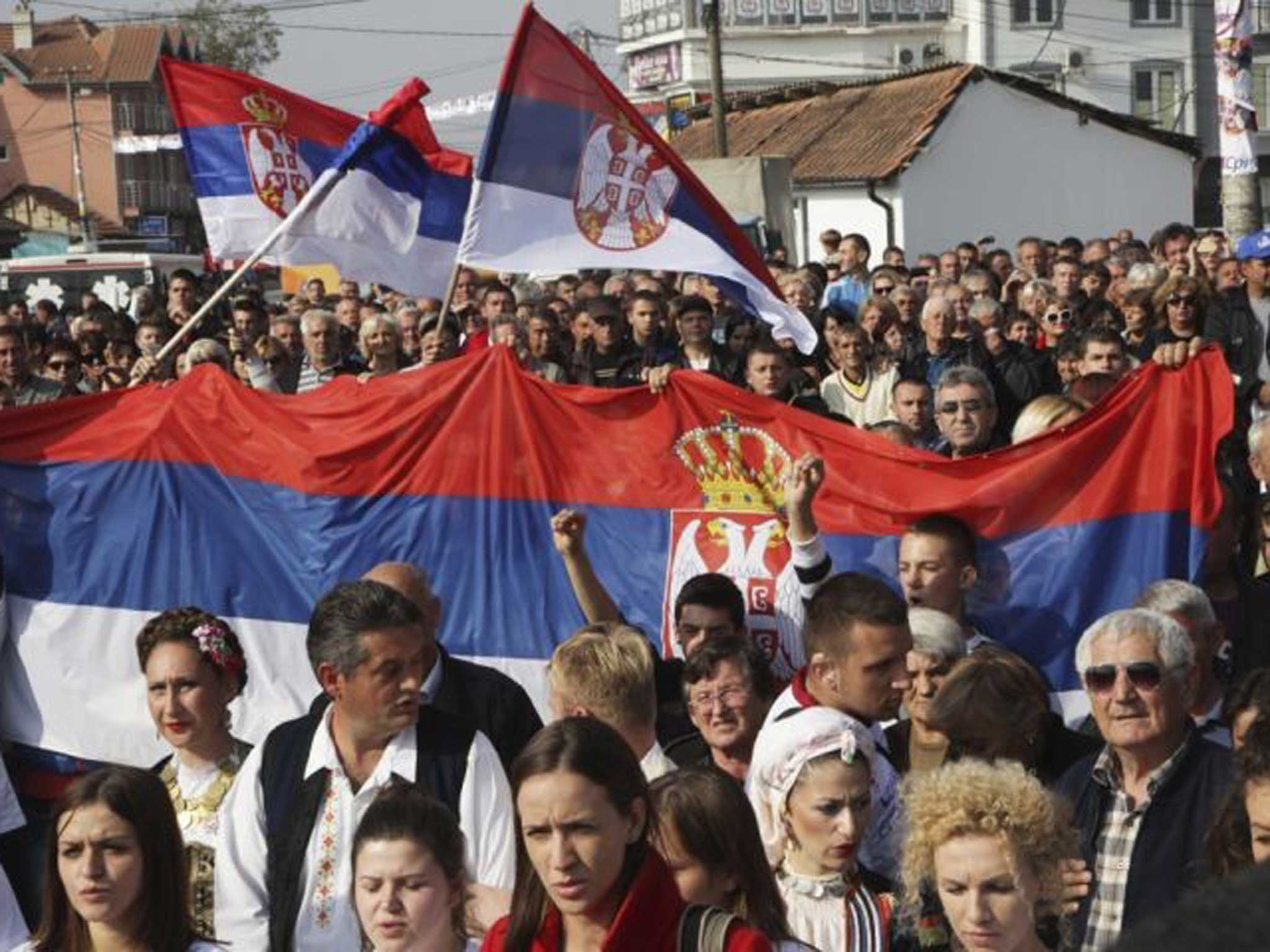'Why are you in politics?' 'To get rich!': Kosovo's local poll is being enlivened by the satirical Strong Party
Led by its self-styled 'legendary president', the party's logo is the double-headed Albanian eagle, albeit sporting comedic bulging wing muscles

Your support helps us to tell the story
From reproductive rights to climate change to Big Tech, The Independent is on the ground when the story is developing. Whether it's investigating the financials of Elon Musk's pro-Trump PAC or producing our latest documentary, 'The A Word', which shines a light on the American women fighting for reproductive rights, we know how important it is to parse out the facts from the messaging.
At such a critical moment in US history, we need reporters on the ground. Your donation allows us to keep sending journalists to speak to both sides of the story.
The Independent is trusted by Americans across the entire political spectrum. And unlike many other quality news outlets, we choose not to lock Americans out of our reporting and analysis with paywalls. We believe quality journalism should be available to everyone, paid for by those who can afford it.
Your support makes all the difference.The regional elections in Kosovo today have been enlivened by the bid by Serb nationalists in the northern town of Mitrovica to boycott the vote as a way of showing they see themselves as part of Serbia, not Kosovo. Yet the Serbian government in Belgrade is vigorously encouraging the 120,000-strong Serb minority in Kosovo to vote.
Among the 1.8 million Albanians in Kosovo, however, the election looks much as usual, except for an unexpected element: a new party, the "Party of the Strong". Led by its self-styled "legendary president", a 26-year old graphic designer called Visar Arifaj, the party's logo is the double-headed Albanian eagle, albeit sporting comedic bulging wing muscles.
The party, though funny, is deadly serious about its aims. And in the bombastically nationalist, male-dominated, croneyist world of Kosovo politics, it is something new and increasingly popular.
Its approach was summed up when the candidates standing for mayor of Pristina appeared on television last month Asked why they wanted to stand, the main candidates mentioned the public good. But when Mr Arifaj declared that he wanted to be mayor was to gain power and get rich, the audience laughed uproariously
It was an example of what the party does: it says what other parties actually do. Kosovo politics is riddled with corruption, and privatisation has enabled politicians to enrich a small circle of their supporters while few factories work and unemployment stands at 60 per cent. The situation is ripe for satire.
The nearest equivalent to the Party of the Strong is the Italian comedian Beppe Grillo, who transformed the Italian elections by satirising mainstream politics this year.
Mr Arifaj set up the party two years ago with a group of friends and, he admits cheerfully, a "certain amount of alcohol" was involved. "We were just thinking about the possibilities of forming a political party that would mock the way the other parties have been communicating. We would do what the other parties do but multiply it by 10."
The situation at the time was dismal even for Kosovo, after elections so corrupt that, in some areas, the turnout was 119 per cent. "Quite a good turnout," says Mr Arifaj drily. "As a citizen, you have to be quite offended by that. So our party declared that the dead were among our keenest supporters." They registered the new party. Once he took part in joint TV appearances with other candidates, things took off.
Mr Arifaj himself comes from an urban middle-class background. "I was quite comfortably off before all this," he says. His friends are, like him, young creative professionals. The average age of party supporters is 24 and some would not remember the 1999 conflict with Milosevic.
In another break with tradition, the party does not do public rallies but communicates on Facebook. Indeed, the whole thing could not have happened without social media.
On female representation within the party, Mr Arifaj says: "Other parties have protected representation for women. We have a men's caucus. Our objective is the domestication of Kosovo men."
He says the party's priorities "change from day to day". He adds: "All our policies, you see, are priorities. I get to choose." He has declared, for example, that the party would scrap secondary education so that students move straight from primary school to university. It is a thinly veiled reference to those politicians who have little secondary education but somehow managed to obtain degrees online or from institutions in India.
Their approach to unemployment is also typically satirical. "We say the problem is those people who are still in work," Mr Arifaj says. "Why should they turn up for work, rather than have money sent to them at home?" The influence of the US State Department over local politicians is also mocked: "We thank the Americans when we have fine weather."
The party may well win seats in this election and is likely to take part in national elections, but winning is not the point. What matters to him are the numbers who have written to thank him for having said what they're thinking. "Even if we got no votes at all, we've achieved our aim," he says, "which is to undermine the way politics has been carried out for the past 14 years since independence. We're doing actual politics. We're just not doing it in a conventional way."
Join our commenting forum
Join thought-provoking conversations, follow other Independent readers and see their replies
Comments